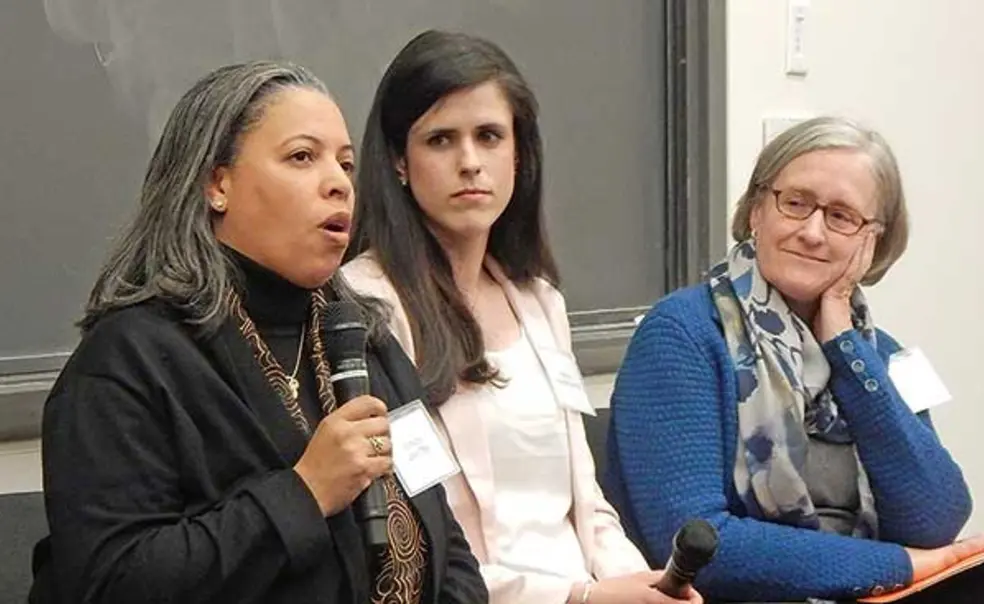Grad School Reflections: Looking Back, Graduate Alumnae Recall ‘This Sense of Isolation’
As Princeton begins to mark the 50th anniversary of undergraduate coeducation, a panel of graduate alumnae last month recalled experiences marked by feelings of isolation within their scholarly community.
Sabra Follett Meservey *66 was the first woman admitted to the Graduate School, in 1961, eight years before undergraduate women matriculated. Women still comprise a minority of graduate students today — 40 percent overall, and just 28 percent in engineering, said Sarah-Jane Leslie *07, dean of the Graduate School.
The oldest students on the panel remembered a different University than today’s. Ann Kirschner *78, a CUNY professor and a Princeton trustee, said the most obvious way she stuck out was not in terms of gender, but class. “I thought I had landed on the planet Zargon,” said Kirschner, a graduate of SUNY Buffalo. It was hard to find another student in the humanities who had attended a public university, and Kirschner jokingly called Princeton her “finishing school” because everyone else had degrees from old, expensive, private universities.
Katherine Rohrer *80, vice provost emerita at Princeton, said mentorship was not as formalized when she studied in the music department, and she didn’t know how to ask for help. Instead of preparing herself for a future career as a professor or college administrator, she said, she buried herself in her studies.
When Patrice Jean *99 came to campus nearly two decades later, she found that it was still difficult to fit in, especially as a black woman. Jean, who is co-chair of the law firm Hughes Hubbard & Reed’s life-sciences group, was one of the first two black women to get a Ph.D. in molecular biology from Princeton. “There really was this sense of isolation and the graduate students feeling ostracized,” Jean said. Mentoring — and learning from — undergraduates made her feel more accepted.
Karina Alventosa, a second-year Ph.D. student in civil and environmental engineering, said the Graduate School has provided a welcoming environment, largely due to her female adviser’s efforts. Alventosa worked previously in the private sector, and she said she encountered the same sexism there that her mother had described dealing with decades earlier.
The panel was introduced by April Armstrong *14, a Mudd Library staff member who researched the role of women at Princeton for a Mudd exhibit titled “Redefining Old Nassau: Women and the Shaping of Modern Princeton.” She told the story of the first female graduate student in religion, Mary Faith Carson *67. A 1964 letter from an administrator reported: “We have our first woman graduate student. In compliance with the policy regarding first year, women, graduate students we did not offer her scholarship aid. She came anyway.” Women at the Graduate School have come a long way since then, Armstrong said: “We are not simply at Princeton. We are Princeton.”
This is a revised version of a story in the May 15, 2019, issue.












1 Response
stevewolock
6 Years AgoFor the Record
Patrice John *99 was one of the first two black women to get a Ph.D. in molecular biology at Princeton. An article in the May 15 issue about graduate alumnae described that history incorrectly.